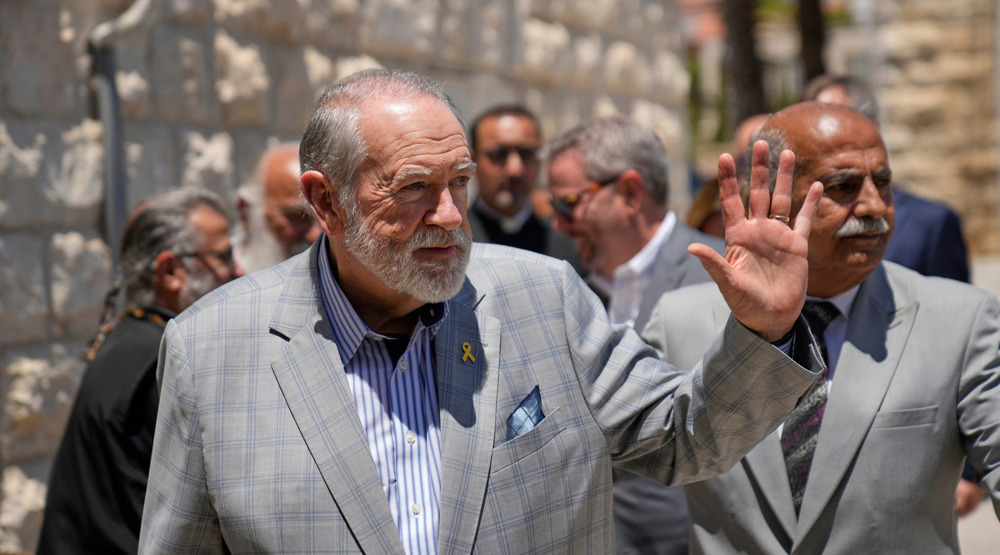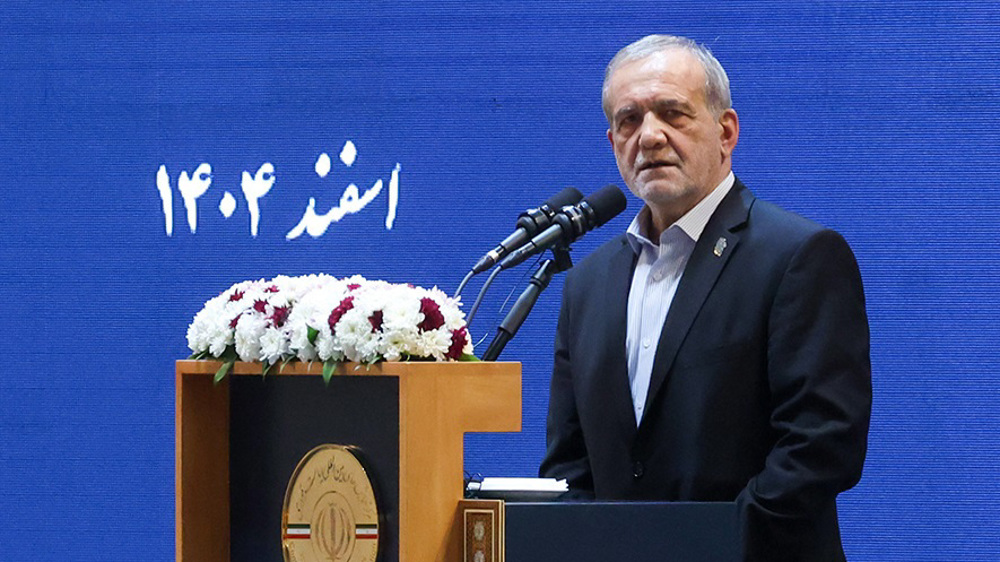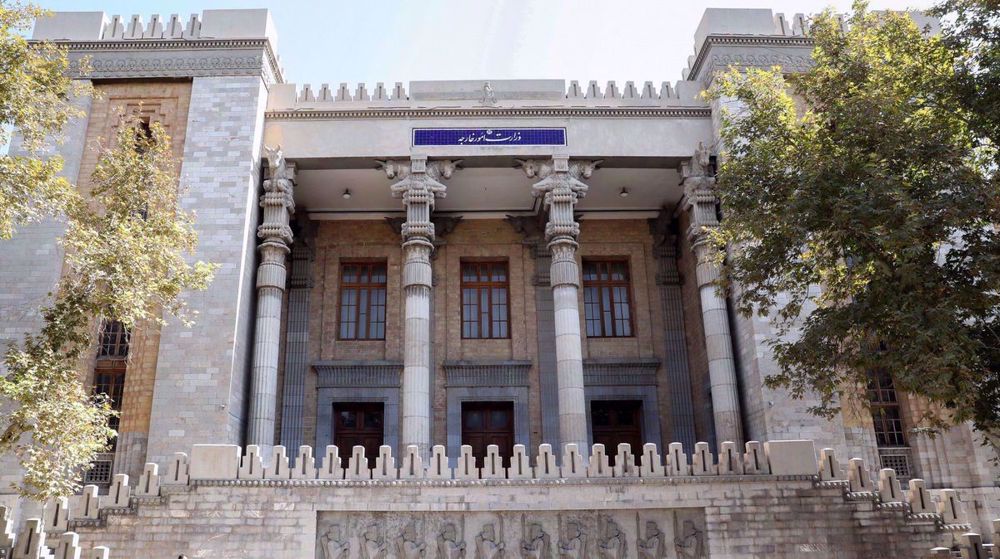Iranian president vows US bans will not go unanswered
President Hassan Rouhani has denounced the US House of Representatives’ approval of a draft law on fresh sanctions against Iran, saying the Islamic Republic would “definitely” give a proportionate response to the hostile move.
Speaking during the cabinet meeting in Tehran on Wednesday, Rouhani said, the Iranian Parliament would adopt reciprocal measures in response to the US sanctions.
“And we will take any step that we deem necessary in line with the interests of our country, and we would continue our path without paying attention to their (Americans’) sanctions and policies,” stressed the Iranian chief executive.
Iranian people, he added, are used to “US hostilities” and know well how to counter them.
Over the past 40 years, the Iranians have been subject to sanctions, pressure and false accusations by American politicians and propaganda apparatus, he added.
The US is not only hostile to Iran’s Islamic establishment, but also to the Iranian nation’s resistance, Rouhani noted, stressing that Washington cannot accept the country as a role model for independence in the region.
President Rouhani noted that the US has no other alternative but to pursue peace and respect the Iranian nation’s rights and the Islamic Revolution and the establishment.
Elsewhere in his remarks he pointed to Iran's defense program, stressing that the Islamic Republic of Iran will boost its defense capabilities regardless of other countries’ “viewpoints.”
“We will keep on the path of improving our defense capability. Our armed forces are supported by the great nation of Iran,” the Iranian president underscored.
‘Decisive response’ awaits US bans
Earlier in the day, Iranian Deputy Foreign Minister for Legal and International Affairs Abbas Araqchi also vowed a “decisive response” to the “hostile” move.
“The measure being taken by the US Congress and the new law being passed against Iran, Russia and North Korea is a blatant hostile act against the Islamic Republic of Iran, which will be met with a decisive response,” he said.
The remarks came a day after the House voted 419-3 for a bill that would levy new sanctions on Iran, Russia and North Korea.
The bill must pass the US Senate before it can be sent to the White House for President Donald Trump to veto or sign it into law.
It targets North Korea and Iran over their ballistic missile programs as well as Russia concerning its alleged meddling in the 2016 US election and the reintegration of the Black Sea Crimean Peninsula.
House Speaker Paul Ryan said the sanctions bill “tightens the screws on our most dangerous adversaries in order to keep Americans safe.”
Read more:
Araqchi further said Iran has over the past years faced similar “hostile moves” by the US Congress and government, and that such an approach "is not particular to the current or former governments” in Washington.
The new bill is in fact a “conclusion of previous US sanctions in non-nuclear fields,” he said, adding, however, that it “could affect the successful implementation” of the 2015 nuclear deal, officially called the Joint Comprehensive Plan of Action (JCPOA).
As a result, Araqchi said, the draft sanctions law “is incompatible with different clauses of the JCPOA, under which the US is committed to implementing the deal with good will and in a constructive atmosphere.”

The Trump administration only recently certified to Congress for a second time since taking office in January that Iran was complying with the nuclear accord.
Araqchi said that Washington had no other choice, considering that the International Atomic Energy Agency has confirmed Iran’s compliance with the deal seven times.
He stressed that Iran “will remain patient and make a practical decision in proportionate to the US measures.”
The JCPOA was inked between Iran and the P5+1 countries — namely the US, Russia, China, France, Britain, and Germany — in July 2015 and took effect in January 2016.
Under the deal, which was later endorsed by a UN Security Council resolution, limits were put on Iran’s nuclear activities in exchange for the removal of all nuclear-related bans imposed on the Islamic Republic, among other things.
The Trump administration, which took over in January 2017, one year after the JCPOA came into force, has however slapped sanctions on Iran in violation of the nuclear deal.
Iran, other Muslim states slam US envoy’s endorsement of ‘Greater Israel’ plot
Hezbollah says has ‘no choice’ but to defend itself after deadly Israeli strikes
Israeli army defends soldier’s viral ‘rape’ remark amid global outrage
VIDEO | British Museum removes Palestine from exhibit labels
VIDEO | 'Justice for Palestine' protest held in Paris
Potential US attack on Iran to be met with decisive missile force: Lebanese MP
VIDEO | Ramadan begins in France amid optimism, challenges
Hamas: Huckabee’s remarks expose ‘American bias towards Zionist domination, annexation’









 This makes it easy to access the Press TV website
This makes it easy to access the Press TV website